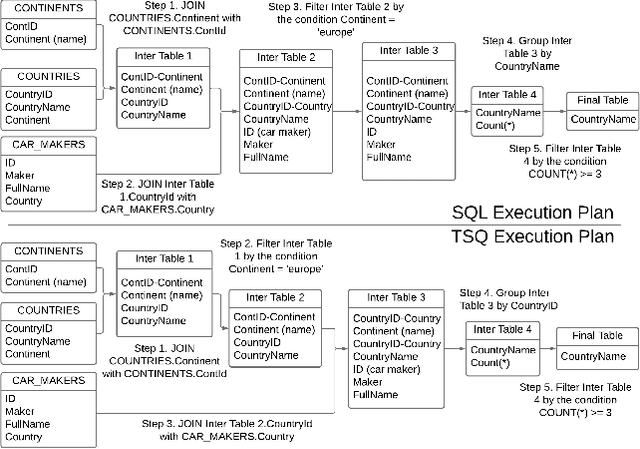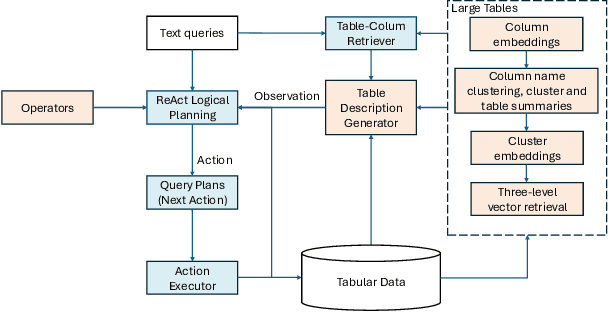Jacky Jiang
Text to Query Plans for Question Answering on Large Tables
Aug 26, 2025



Abstract:Efficient querying and analysis of large tabular datasets remain significant challenges, especially for users without expertise in programming languages like SQL. Text-to-SQL approaches have shown promising performance on benchmark data; however, they inherit SQL's drawbacks, including inefficiency with large datasets and limited support for complex data analyses beyond basic querying. We propose a novel framework that transforms natural language queries into query plans. Our solution is implemented outside traditional databases, allowing us to support classical SQL commands while avoiding SQL's inherent limitations. Additionally, we enable complex analytical functions, such as principal component analysis and anomaly detection, providing greater flexibility and extensibility than traditional SQL capabilities. We leverage LLMs to iteratively interpret queries and construct operation sequences, addressing computational complexity by incrementally building solutions. By executing operations directly on the data, we overcome context length limitations without requiring the entire dataset to be processed by the model. We validate our framework through experiments on both standard databases and large scientific tables, demonstrating its effectiveness in handling extensive datasets and performing sophisticated data analyses.
 Add to Chrome
Add to Chrome Add to Firefox
Add to Firefox Add to Edge
Add to Edge